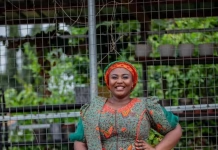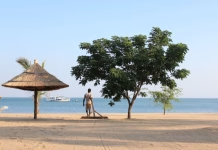
Poverty and Inequality have been identified as major hurdles to the fortunes of the poor. These were amplified at an inaugural lecture in Accra by Professor Dzodzi Akuyo Tsikata.
The lecture, which sought to highlight the after-effects of Covid-19 and its accompanying challenges on human lives, further examined the role of the state in bridging the growing gender imbalances in Ghana.
Professor Akuyo Tsikata in her 20-page lecture called for a paradigm shift to tackle inequalities among the haves and have-nots, using a well-integrated solution and approach.
The lecture attended by researchers and high profile individuals in academia was on the theme: “The Road Has Many Stories: Encounters between the State and Citizens of Different Ghana”.
The idea was to deepen participants’ understanding of how State and Non-state Actors can resolve to address the phenomena of inequality, gender biases, and societal neglect that worsen the condition of the life of people in rural communities.
The ultimate goal, however, was to draw the attention of the State to these socio-economic deficits.
From a multi-disciplinary perspective, Professor Akuyo Tsikata gave an insightful policy briefing on existing inequalities in society with particular emphasis on women and girls in deprived areas.
She described women as forgotten individuals with disproportionate levels of income, due to poverty and deprivation.
Based on this shortfall, Ghana, she hinted, ”is ranked as the worst country in the sub-region with the highest level of inequality by the World Bank”.
Prof Akuyo Tsikata also spoke about the Covid pandemic, saying it has exposed the ”State’s lack of attention to inequality and mentioned patriarchal rule as an underpinning viable that requires remedial action to provoke viable state-society relations”.
Prof. Akuyo Tsikata who began her academic career at the Institute of Statistical, Social and Economic Research ISSER as a Junior Research Fellow before her elevation to the position of Associate Research Professor, is due to end her six-year tenure as the Director of the Institute of African Studies of the University of Ghana in July 2022.





















